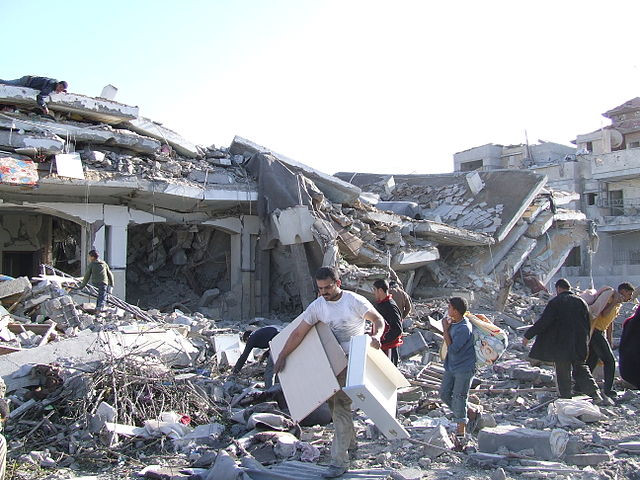As the Israeli military campaign in Gaza intensifies, the humanitarian crisis in the enclave continues to deepen. Over the past 24 hours, at least 45 Palestinians were reported killed in Israeli airstrikes targeting the Jabalia refugee camp in northern Gaza, according to Palestinian medics. The ongoing military operation has now entered its fifth day, with Israeli forces aiming to prevent Hamas fighters from regrouping and launching further attacks from the area.
Despite repeated calls from Israel for residents of Jabalia to evacuate, United Nations officials and Palestinian authorities maintain that there are no safe havens left within Gaza. Philippe Lazzarini, head of the U.N. Relief and Works Agency (UNRWA) for Palestinian refugees, stated on social media that "at least 400,000 people are trapped in the area" with limited options for shelter. He described the situation as dire, with civilians facing relentless displacement due to repeated evacuation orders and ongoing bombardments.
The scale of the humanitarian crisis has forced some UNRWA shelters and services to shut down for the first time since the conflict began. Lazzarini warned of an escalating threat of hunger in northern Gaza as access to basic supplies dwindles. "This recent military operation also threatens the implementation of the second phase of the polio vaccination campaign for children," he added, underscoring the broader impact of the conflict on the region's public health.
The situation in Gaza's healthcare sector is deteriorating rapidly, with the Gaza health ministry reporting that the Israeli military has ordered three hospitals in northern Gaza to evacuate. Hundreds of patients and medical staff are currently trapped inside these facilities, facing a life-threatening situation due to the siege. "The lives of dozens of patients are at risk because of the Israeli siege around those hospitals," the health ministry said in a statement.
Israel's military claims that its operations in Gaza are focused on dismantling Hamas's infrastructure, which it accuses of using civilian areas, including schools and hospitals, as shields. Israeli authorities have not yet responded to Lazzarini's comments but have previously asserted that they are facilitating humanitarian aid deliveries to Gaza despite the challenging conditions.
The Israeli offensive comes in response to the Hamas attack on October 7, 2023, which targeted southern Israeli communities, resulting in approximately 1,200 deaths and 250 kidnappings, according to Israeli sources. Since the beginning of Israel's retaliatory strikes, the Gaza health ministry reports that nearly 42,000 Palestinians have lost their lives, with much of Gaza's infrastructure severely damaged.
In response to the latest escalation, Hamas official Izzat El-Reshiq accused Israel of targeting civilians in northern Gaza as punishment for refusing to evacuate their homes. He also criticized the United States for its role in the conflict, accusing it of being complicit in what he termed a "war of genocide" against the Palestinian people.
The impact of the conflict extends beyond Gaza's borders, with the U.S.-led United Nations Command confirming that it has been notified of North Korea's decision to fortify its side of the de facto border with South Korea, citing the threat of escalation in the region. This decision underscores the broader geopolitical tensions influenced by the ongoing conflicts in the Middle East.
International humanitarian organizations have also raised concerns about the deteriorating situation. Médecins Sans Frontières (Doctors Without Borders) described the forced displacement of Gaza's residents as "inhumane," with one staff member stating, "I would prefer to die than to be displaced to the south; my home is here, and I do not want to leave."
As the conflict in Gaza shows no signs of abating, the international community's attention remains fixed on the region. The United Nations Office for the Coordination of Humanitarian Affairs (OCHA) has warned that access for humanitarian aid could become even more restricted, further exacerbating the crisis for the Palestinian population already suffering from a lack of essential supplies and medical services.
The situation remains volatile, with ongoing Israeli strikes leading to a rising death toll in Gaza. Palestinian medics have reported that 18 people were killed in the latest wave of airstrikes, including five children and two women. In Jabalia alone, a family of nine was reportedly killed when an Israeli missile struck their home, highlighting the severe impact of the conflict on civilian lives.




